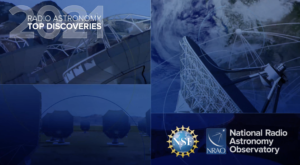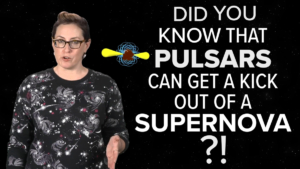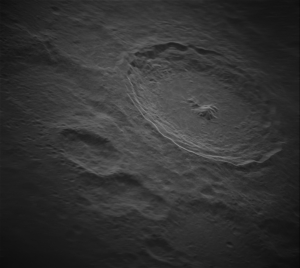Most planets orbit a star, but some planets can escape and “go rogue.” But how do astronomers study planets that wander the cold dark of interstellar space? Join our host, Summer Ash of the National Radio Astronomy Observatory, as she talks about how radio astronomers study rogue planets.


The Multiplicity of Worlds: How the VANDAM Survey Studies Planetary Systems
Astronomers have discovered more than 5,000 planets orbiting other stars. We now know that most stars have orbiting planets…

Inspiring, Retaining and Promoting Female Talent in STEM Careers
Retaining and promoting female talent in science, technology, engineering, and mathematics (STEM) is a goal that must be embraced by large scientific facilities, civil society, academia, and the private sector. A STEM career can be long and full of obstacles for underrepresented minorities, including women, who are strongly influenced by family expectations, teacher bias, and work environments plagued by stereotypes. More female role models in STEM are needed to inspire and increase women’s participation, and they are currently insufficient to retain female employees and stimulate their professional growth into leadership positions.

2021 Science Highlights: Looking Back on a Turbulent Year in Radio Astronomy
The formation of massive stars and planets. The deaths of stars and galaxies. The extreme and violent behaviors of black hole jets and quasars. An up-close and personal radar view of the Moon. These mysteries and more were unraveled in 2021 by radio astronomers leveraging the scientific and technological power of National Radio Astronomy Observatory (NRAO) facilities.

The Baseline #10 – How To Kick A Pulsar Out Of The Galaxy
Pulsars are neutron stars. They are formed when an old star explodes as a supernova, so you would expect to find them in the center of its supernova remnant. But not always. Astronomers have learned that some pulsars are ejected from its remnant. The Very Large Array has discovered one pulsar that is quite a kick.
Join our host Summer Ash of the National Radio Astronomy Observatory as she talks about how you can get a kick out of pulsars.

Astronomical Radar: Illuminating our Understanding of the Solar System
Astronomers study the universe by capturing light from the sky, but they can also learn thing by sending radio light into space.





